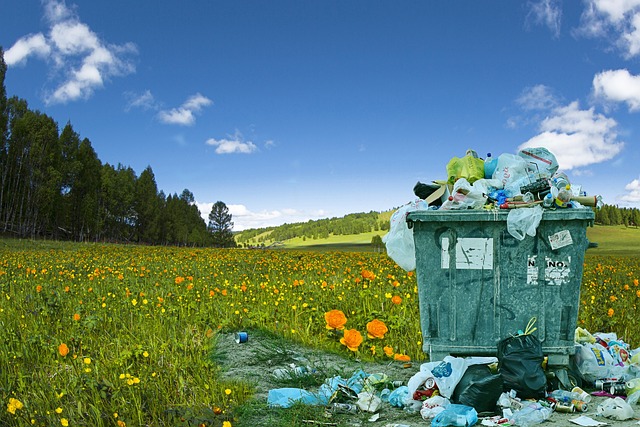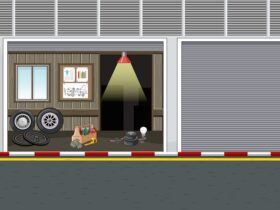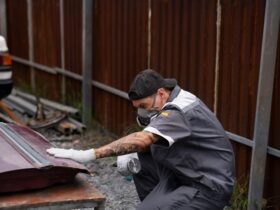Proper rubbish sorting is not just about keeping your home tidy; it’s a crucial step towards a sustainable future. By sorting waste correctly, you can ensure that recyclable materials are processed appropriately, reducing the strain on landfills and conserving natural resources. This guide will walk you through the essentials of sorting rubbish efficiently, making the process straightforward and manageable.
Understanding Different Types of Waste
Before you start sorting, it’s important to know the different categories of waste. Generally, waste can be divided into several main types: recyclables, organic waste, hazardous waste, and general waste.
Recyclables include materials like paper, cardboard, glass, metals, and certain plastics. These items can be reprocessed into new products, reducing the need for raw materials.
Organic waste comprises food scraps, garden clippings, and other biodegradable materials. This type of waste can be composted to create nutrient-rich soil.
Hazardous waste includes items like batteries, chemicals, and electronic devices. These materials require special handling to prevent environmental contamination.
General waste is everything else that doesn’t fit into the above categories. This waste typically ends up in landfills.
Setting Up a Sorting System at Home
Creating an efficient sorting system at home is the first step towards proper waste management. Start by designating separate bins for each type of waste. Ideally, you should have at least four bins: one for recyclables, one for organic waste, one for hazardous waste, and one for general waste.
Place these bins in convenient locations around your home. For example, keep the recycling bin in the kitchen where most recyclable waste is generated. The organic waste bin can be placed under the sink or in the garden if you have a compost heap.
Labelling each bin clearly will help everyone in the household know where to put their waste. This simple step can significantly reduce the chances of cross-contamination.
Recycling: What Can and Cannot Be Recycled
Recycling is one of the most effective ways to reduce waste, but it’s crucial to know what can and cannot be recycled. Generally, paper, cardboard, glass bottles, aluminium cans, and certain plastics are recyclable. However, items like greasy pizza boxes, certain types of plastic bags, and broken glass should not be placed in the recycling bin.
It’s also important to rinse out containers before recycling them. Food residue can contaminate other recyclables, making them unsuitable for processing. Flattening cardboard boxes can save space in your recycling bin and make the collection process more efficient.
Check with your local council for specific recycling guidelines, as they can vary from one area to another.
Composting Organic Waste
Composting is a fantastic way to manage organic waste and create a valuable resource for your garden. Start by setting up a compost bin or heap in your garden. You can compost fruit and vegetable scraps, coffee grounds, eggshells, grass clippings, and leaves.
Avoid composting meat, dairy products, and oily foods, as these can attract pests and create unpleasant odours. Turn your compost regularly to aerate it and speed up the decomposition process.
If you don’t have a garden, consider a small indoor composting system or check if your local council offers a food waste collection service.
Handling Hazardous Waste
Hazardous waste requires special attention due to its potential to harm the environment and human health. Items like batteries, paint, chemicals, and electronic devices should never be thrown in the general waste bin.
Many local councils offer special collection services for hazardous waste. Alternatively, you can take these items to designated drop-off points. Some retailers also offer take-back schemes for products like batteries and electronics.
Always store hazardous waste in a safe place until it can be properly disposed of. Ensure that containers are sealed and labelled to prevent accidents.
Reducing General Waste
Reducing the amount of general waste you produce is a key aspect of efficient rubbish sorting. Start by being mindful of what you buy. Opt for products with minimal packaging and choose reusable items over disposable ones.
Repairing and reusing items can also significantly cut down on waste. For example, instead of throwing away a torn piece of clothing, consider mending it. Similarly, repurpose glass jars as storage containers rather than discarding them.
Donating items you no longer need is another great way to reduce waste. Many charities accept clothing, furniture, and household items in good condition.
Educating Your Household
Getting everyone in your household on board with proper rubbish sorting is essential for success. Take the time to explain the importance of waste management and how to sort rubbish correctly.
Create a simple guide or chart that outlines what goes in each bin. Place it in a visible location, such as on the fridge or near the bins.
Encourage children to participate by making sorting a fun and educational activity. Teach them about recycling, composting, and the impact of waste on the environment.
Staying Informed and Adapting
Waste management practices and regulations can change, so it’s important to stay informed. Keep up to date with your local council’s guidelines and any new recycling initiatives.
Be open to adapting your sorting system as needed. For example, if you find that your recycling bin fills up quickly, consider getting a larger bin or arranging more frequent collections.
Regularly review your waste habits and look for areas where you can improve. Small changes can make a big difference over time.
Conclusion
Properly sorting rubbish for efficient rubbish removal is a simple yet impactful way to contribute to a more sustainable future. By understanding the different types of waste, setting up an effective sorting system, and educating your household, you can make a significant difference. Remember, every small effort counts towards a cleaner, greener planet. So, start sorting today and be part of the solution.









Find Us on Socials